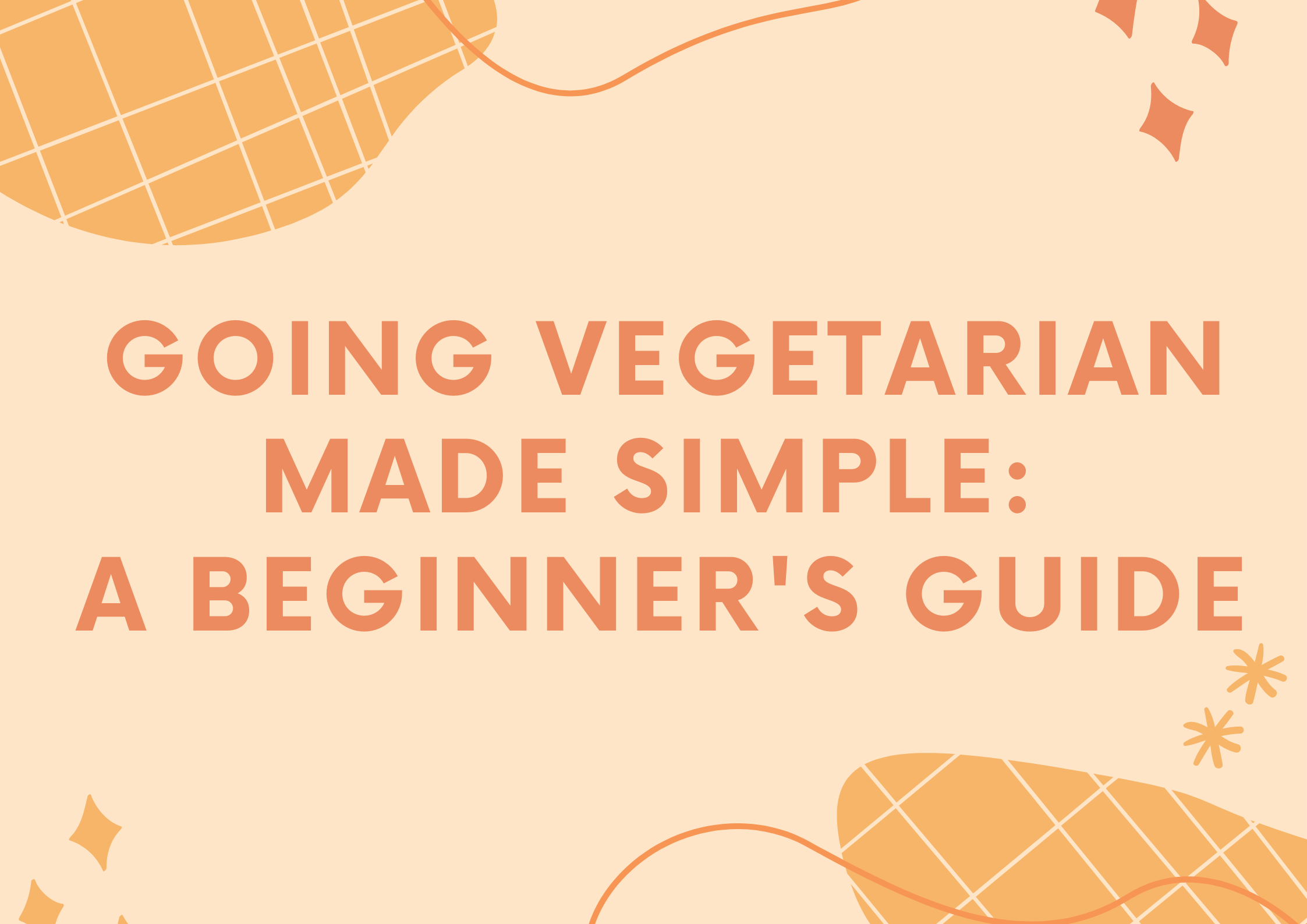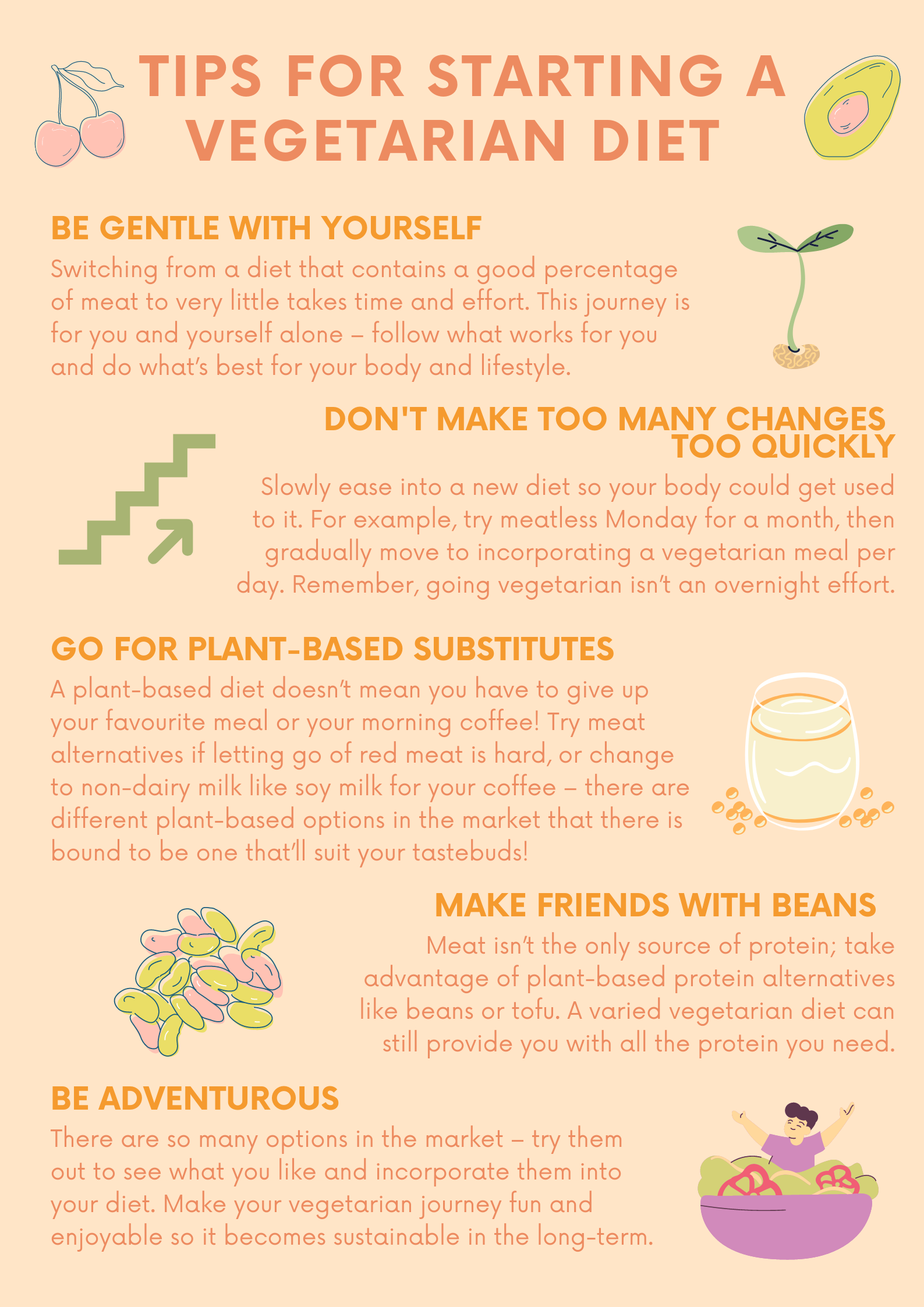
Going vegetarian made simple: a beginner’s guide
A vegetarian diet provides a slew of benefits for you and the planet. If you are thinking of incorporating plant-based foods into your diet, doing so is easier now more than ever as more and more meat alternatives (e.g. plant-based meat) enter the market. The trend of vegetarianism is showing no end in sight, as 2.5 million Australians (12.1% of the population) are now partially or fully vegetarian (Roy Morgan, 2019).
That being said, becoming vegetarian isn’t an overnight effort – it is a mindful migration of doing what’s best for you and the planet. With October being Vegetarian Awareness Month, now’s the perfect time to take a deep dive into this growing trend and explore some tips on how to get into a meatless diet.
What is vegetarianism?
Going vegetarian isn’t simply the act of omitting meat from meals. It is, in fact, an umbrella term for different levels of vegetarianism. What distinguishes these subsects from one another is the absence of different types of animal products. Knowing what level of vegetarianism fits your lifestyle makes the journey to a meatless diet much smoother. Here are the different classifications of vegetarianism:

Different types of vegetarianism
The benefits
Going vegetarian not only comes with many health benefits, but it also does wonders for the planet. Below are a few reasons to start your journey today.
Environmental benefits
The livestock sector is responsible for an estimated 18% of greenhouse gas emissions and contributes to the loss of biodiversity – some might say that it is “the major stressor on the ecosystems and the planet” (The Food and Agriculture Organisation of the United Nations, 2016). Further research shows that a global switch to a veggie-based diet can reduce greenhouse gas emissions by two thirds of current levels (University of Oxford, 2016).
Meat production is the leading source of water pollution in many countries as well. It has a higher water footprint compared to the production of grains and beans. By following a meat-free diet, you can reduce your water footprint by up to 55% (Vanham et al., 2018).

Water footprint example: meat vs tofu
Meat consumption also has a cost on animal welfare. Animals lose their status as living beings and are slaughtered in inhumane ways during the meat manufacturing process.
Health benefits
Eliminating red meat and processed meat (known to be associated with certain types of cancers) while following a vegetarian diet rich in whole grains, fruits and veggies can prevent certain types of cancer. A vegetarian diet is also abundant in antioxidants, vitamins, fibre, and phytochemicals, which help the immune system and improve your skin.
Furthermore, diets that are predominantly vegetarian are known to reduce heart disease and LDL cholesterols. Studies have also shown that vegetarians are 33% less likely to suffer from heart disease (Crowe, 2013). A healthy vegetarian diet also prevents type 2 diabetes and lowers blood pressure.
While going vegetarian brings many benefits to your health, it’s equally as important to follow a balanced, nutritious diet to maximise the benefits of vegetarianism.
Tips for starting a vegetarian diet
People tend to fall into the mindset of ‘I can always start again tomorrow’ when they first start their plant-based transition. Going vegetarian can be a stress-free experience if you follow the tips below.

5 tips for starting a vegetarian diet
Even if a fully vegetarian lifestyle isn’t for you, one small change in what you consume can benefit the world immensely. As more people join this sustainability movement, whether it’s by eating one vegetarian meal a day or adopting a fully vegetarian lifestyle, everyone has the chance to make a significant difference.
References
Crowe, F. L., Appleby, P. N., Travis, R. C., & Key, T. J. (2013). Risk of hospitalization or death from ischemic heart disease among British vegetarians and nonvegetarians: results from the EPIC-Oxford cohort study. The American Journal of Clinical Nutrition 97(3), 597–603. https://doi.org/10.3945/ajcn.112.044073
Roy Morgan. (2019, April 12). Rise in vegetarianism not halting the march of obesity [Press Release]. http://www.roymorgan.com/findings/7944-vegetarianism-in-2018-april-2018-201904120608
The Food and Agriculture Organisation of the United Nations. (2016). Livestock’s long shadow environmental issues and options. https://www.fao.org/3/a0701e/a0701e.pdf
University of Oxford. (2016, March 22). Veggie-based diets could save 8 million lives by 2050 and cut global warming. https://www.ox.ac.uk/news/2016-03-22-veggie-based-diets-could-save-8-million-lives-2050-and-cut-global-warming
Vanham, D., Comero, S., Gawlik, B. M., & Bidoglio, G. (2018). The water footprint of different diets within European sub-national geographical entities. Nat Sustain 1, 518–525. https://doi.org/10.1038/s41893-018-0133-x
